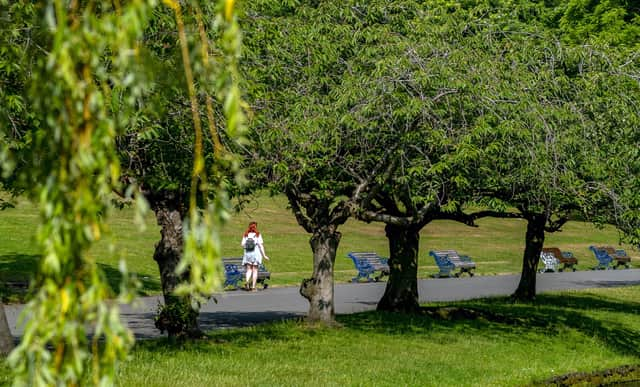International Women’s Day: Gender bias in the way public spaces are designed is putting women at risk – Christine Jardine MP


And this past 12 months certainly have not broken that challenging cycle.
It almost doesn't seem to matter where you look across the world, women's rights have been under fire and lives have been, and continue to be, turned upside down.
Advertisement
Hide AdAdvertisement
Hide AdAt this time last year, here at home we were hearing about the horror of Sarah Everard’s murder. We had yet to learn that her killer had been a serving police officer or to see how those at her vigil were treated. All the work over decades to secure a safer environment for women seemed lost in that one night.
And yet looking back on the past 12 months it is, sadly, not the only or the fiercest attack on women and our rights.
Tomorrow is International Women’s Day and, since we last marked it, at least 125 women have been murdered in this country. That is one woman killed every 72 hours.
In Afghanistan, a generation of women who had been enabled to rediscover their potential, in many cases enjoy their first freedoms, have had them cruelly snatched away again by the return of the Taliban.
In Ukraine, we can have no real understanding of the horror that every woman is facing trying to hold her life, and that of her family, together when all adult men have been conscripted.
Others will have joined the front line in defending their country against Putin. Russian mothers, wives, female soldiers are all facing similar agonies.
But why single out women in war? Surely, some will say, there are more men who will die?
In the fighting itself, yes. But we know from all historical accounts that women continue to be the victims of war wherever they are. Victims of abuse, assault and rape by invading forces.
Advertisement
Hide AdAdvertisement
Hide AdIn peace too we are seeing our rights under attack. In the USA, the election of Kamala Harris seemed to perhaps mark a new era.
But the crowds seem barely to have dispersed from the inauguration when states began to dismantle long-established abortion legislation and eliminate choice from the agenda.
In this country, the legislation in vital areas of women’s rights seems secure but ensuring there are sufficient female elected representatives to make progress is less certain.
I spoke to a young woman who stood in a recent General Election and, although she told me she would love to do it again, she ruled it out saying she “can’t afford to do it properly”.
Being a candidate with a full-time job through to polling day doesn’t work but neither will taking three to six months off unpaid, unless you are sitting on a pile of cash.
You may also need people who can take on full responsibility for the other parts of your life for you. I know the reality of that situation, having taken two years out to build and pursue a life in politics.
I was lucky to have that husband who was prepared to look after the rest of my life for me and a daughter who was old enough to take part in my journey.
At least now there seems to be an awareness of the conundrum that young woman talks about, and the danger of losing her and countless others with so much to offer our politics.
Advertisement
Hide AdAdvertisement
Hide AdA House of Commons report, Equality in the heart of democracy: A gender sensitive House of Commons, by the Women and Equalities Committee seeks to highlight and tackle the underrepresentation of women and minority groups in parliament.
In Scotland, Presiding Officer Alison Johnson has launched an audit to look at barriers to women entering Holyrood.
Just 29 per cent of Scotland’s councillors are female, trailing behind both Westminster and Holyrood in percentage representation.
Until we change that, we will not begin to undo the framework, the literal building blocks of society, and make all of our lives safer.
In parliament, those of us who have made it over that barrier have, I believe, a responsibility to do what we can to make it safer for others.
For International Women’s Day, I shall be presenting a Bill which aims to start to shift those building blocks by ensuring that our built environment is designed with protecting women in mind.
That issue of women being omitted from consideration in urban planning is neither imagined nor new.
In 2016 Saskia Sassen wrote in “Built Gendering” that while research on how urban systems fail to take into account women’s needs stretch back a long time, it is only in the past decade that the subject has “surged”.
Advertisement
Hide AdAdvertisement
Hide AdWe are now acknowledging in cities across the world that women experience their environments differently from men.
For example, women who combine productive work with being a mother or carer are more likely to use parks and public spaces in daylight hours. Yet those same spaces will be mostly designed by men with their needs in mind.
And if we are to truly protect women’s safety that is the issue we have to resolve. It has to be planned in from the very beginning.
My Bill would mean legislation demanding that all projects have undergone risk assessment and meet safety criteria before they can have planning permission.
If gender bias can be removed from the design of our built environment, we might actually begin to prevent rather than react to violence against women.
Now that would be a good day to write about.
Christine Jardine is the Scottish Liberal Democrat MP for Edinburgh West
